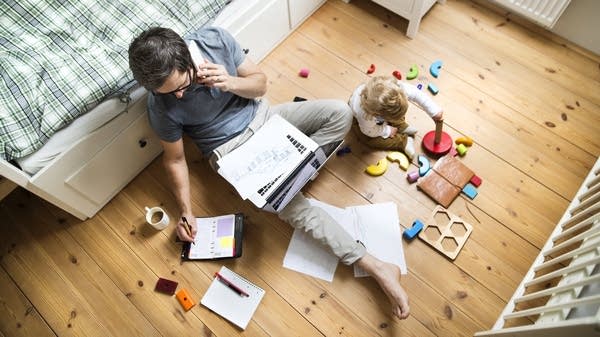Tips for staying resilient during the COVID-19 pandemic

Go Deeper.
Create an account or log in to save stories.
Like this?
Thanks for liking this story! We have added it to a list of your favorite stories.
Scared? Worried? Anxious?
These are normal feelings during this terrifying moment. But now is not the time to neglect your mental health.
Here’s how you can stay resilient during this time of uncertainty:
Stay in the present
It’s absolutely normal to be worried and anxious.
Turn Up Your Support
MPR News helps you turn down the noise and build shared understanding. Turn up your support for this public resource and keep trusted journalism accessible to all.
If you’re feeling overwhelmed, try not to anticipate what hasn’t happened yet, said Jen Atherton, a licensed professional clinical counselor at a private practice in Maple Grove.
Sarah Jerstad, a psychologist at Children’s Minnesota, said we are also grieving the life we had just a month ago.
“Stop and take some deep breaths. Separate from what you are doing; take a walk,” Jerstad suggested.
She also said to reach out to friends and family members and talk about your worries. They can be incredibly supportive during this time.
Don’t keep your kids in the dark
Give them information that you know.
Jerstad said when kids become uncertain about what’s happening, their anxiety increases.
For toddlers and young kids, it’s best to offer simple, basic explanations of what’s happening, without spending too much time focusing on it.
For older kids, let them lead the conversation. They are seeking out information on their own, too. Jerstad encourages parents to talk with their kids about what they are reading.
And it’s okay to tell your kids you are worried.
“This is not the time to hide information from kids, because kids will see the worry and anxiety in parents,” Jerstad said.
Use technology to connect while social distancing
Not being able to get together is tough.
“Find some opportunity to connect with one another,” said Sarah Jerstad. “Connection is one of the biggest things that we are losing right now. And I think what we are realizing right now is that connection is important for our mental health.”
Jen Atherton said it’s a good idea to take advantage of technology to connect. There are various apps that you can use to virtually hang out like video teleconferencing.
“Any kind of contact that you can have face to face in real time, I think would be important,” Atherton advised.
And it’s OK to turn off the news and social media.
Put energy into helping others
There’s no shortage of need right now.
Jerstad says you can find ways to help from a distance. You can sew masks for health care workers on the front lines; financially donate to charities helping families buy supplies, or help a neighbor. (Check out this link for other ways to help.)
“Engaging in these acts in the best way to improve mental health is helping others,” she said.
Guests:
Jen Atherton is a licensed professional clinical counselor at a Maple Grove private practice
Sarah Jerstad is a psychologist at Children’s Minnesota and also the associate clinical director for the hospital’s psychological services.
Alisa Roth is MPR News’ mental health correspondent.
Some resources:
National Alliance on Mental Illness on mental health coping strategies in the time of COVID-19.
Anxiety and Depression Association of America on managing coronavirus anxiety.
Centers for Disease Control and Prevention on managing stress and anxiety.
Substance Abuse and Mental Health Services Administration on tips for social distancing, quarantine, and isolation during an infectious disease outbreak.
This conversation is part of “Call To Mind” — MPR’s initiative to foster new conversations about mental health. Learn more at calltomind.org.
Use the audio player above to listen to the program.
Subscribe to the MPR News with Angela Davis podcast on: Apple Podcasts, Google Podcasts, Spotify or RSS.


